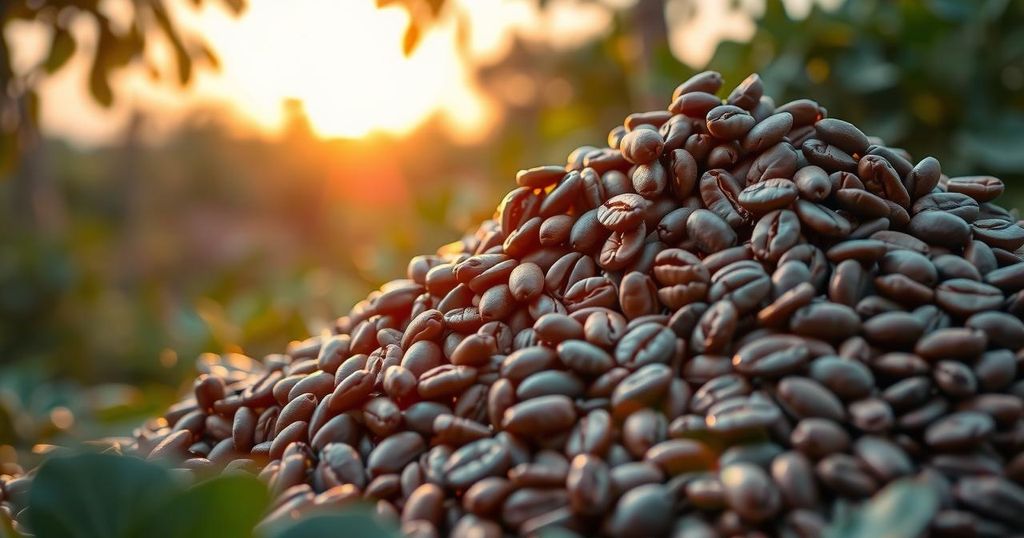Coffee prices have reached record highs due to climate change, political instability, and supply chain disruptions. Arabica prices soared by 90% last year, while demand continues to outpace supply. Emerging markets, particularly in China, are reshaping the coffee landscape, although small producers still face financial hardships amidst market volatility.
Recent global factors such as climate change, political instability, and shifting market dynamics have resulted in significant increases in coffee prices. This surge has impacted the cost of everyday coffee products, with industry analysts predicting ongoing volatility. Many coffee producers, especially those farming small land parcels, face uncertainty as they navigate these challenging market conditions.
In December 2022, arabica coffee prices hit a historic high of $3.48 per pound, reflecting a remarkable 90% increase over the previous year. Meanwhile, robusta coffee prices also rose, although the increase was not as steep due to its lower market position. The fear of poor harvests from key producing countries, Brazil and Vietnam, has intensified this price rise, as the demand continues to exceed supply significantly.
In addition to climatic issues, logistical disruptions, such as delays caused by geopolitical tensions in the Red Sea region, are exacerbating the situation. Analysts like Carlos Mera highlight that disruptions prolong shipping times, especially for Southeast Asian beans heading to Europe, further complicating the supply chain. This scenario is compounded by regulatory delays concerning deforestation laws impacting coffee imports, with the EU postponing the law’s implementation until later this year.
Climate challenges particularly threaten the arabica variety, which requires higher elevations for cultivation, especially as global temperatures increase. In contrast, robusta coffee’s broader growing conditions help its resilience. However, both varieties face new climatic threats, such as adverse weather patterns and pests, affecting their production in traditional regions like Brazil and Vietnam.
Interestingly, emerging markets for coffee consumption, particularly in China, are changing the dynamics of global demand. China’s imports of coffee beans surged from 1.5 million bags four years ago to 4.3 million in the current season, indicating growing interest in coffee. In contrast, European markets have experienced a slight decline due to economic pressures.
Despite the increased coffee prices, many farmers remain impoverished, lacking sufficient bargaining power in a market dominated by multinational corporations. The impact of fluctuating prices is critical; a sudden drop could jeopardize their livelihoods, potentially leading to abandoned crops. Recognizing this urgency, a Global Coffee Sustainability Fund was established to enhance productivity and support growers financially.
Coffee, a globally cherished beverage, is significantly influenced by various socio-economic factors. Recent trends have highlighted the substantial role of climate change in affecting coffee cultivation, specifically concerning arabica and robusta beans. These varieties have distinct growing conditions and pricing structures, impacting global trade dynamics. Emerging consumer markets, particularly in countries like China, further complicate traditional coffee consumption patterns, presenting both opportunities and challenges for producers worldwide.
In conclusion, the surge in coffee prices reflects a complex interplay of climatic, political, and market factors. As demand continues to rise, particularly in non-traditional markets, volatility is likely to reshape the coffee industry. Ensuring fair compensation for smallholders remains crucial amidst these fluctuations to foster sustainable production practices and support livelihoods in developing regions.
Original Source: www.taipeitimes.com






